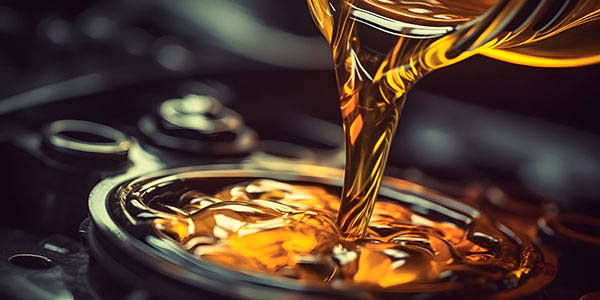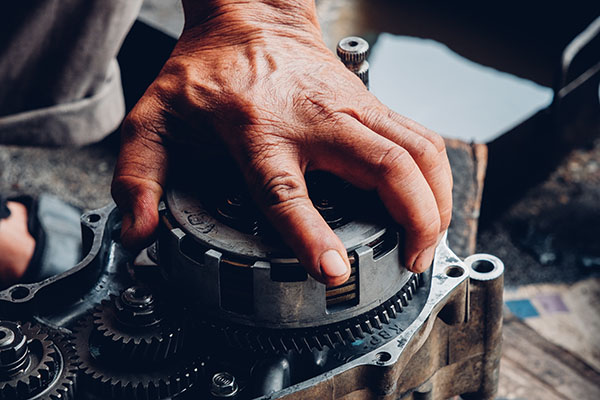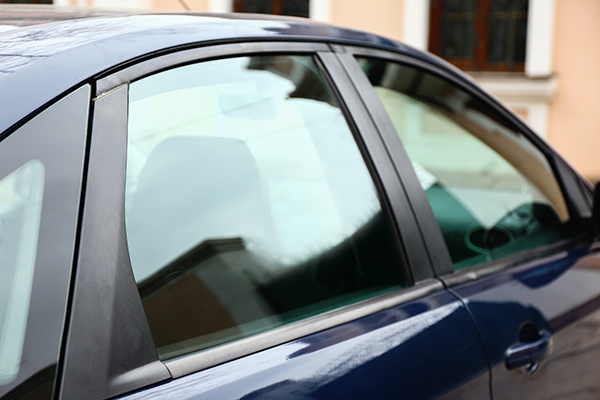Posted on 2/27/2024
.jpeg)
If you've noticed that your Ford vehicle is not performing as well as it used to, or consuming more fuel than usual, it could be due to a clogged or dirty intake air filter. Many people tend to overlook this important maintenance task, but replacing the air filter at regular intervals can greatly improve your engine's performance and fuel efficiency. Let's take a look at how to change it and everything else you need to know! Why Change the Intake Air Filter? Before diving into the replacement process, it's essential to understand the importance of the intake air filter. The intake air filter prevents harmful debris, dirt, and contaminants from entering the engine's combustion chamber. Over time, the filter becomes clogged with dirt and debris, restricting ... read more
Posted on 1/27/2024
.jpeg)
Understanding how your car's engine stays cool is essential for any vehicle owner. The engine generates a significant amount of heat during operation, and if this heat is not managed properly, it can lead to engine overheating and potential damage. Let's delve into an engine's cooling process and uncover this vital system's intricacies. The Basics of Engine Cooling Engine cooling is a fundamental process that revolves around the transfer of heat. The primary objective is to eliminate heat generated by the engine and release it into the surrounding air. This is made possible through a cooling system that comprises various essential components, including: 1. Radiator The radiator is the most visible part of the cooling system. It's designed to disperse heat absorbed by the coolant from the engine. As the coolant passes through ... read more
Posted on 10/31/2023

In the world of automotive maintenance, few choices are as critical as selecting the right engine oil for your diesel-powered vehicle. Just like the human heart relies on the right nutrients to pump life into the body, your diesel engine relies on the right oil to perform at its best. With a myriad of options available on the market, choosing the best diesel engine oil can be a daunting task. The Main Question: Synthetic vs. Conventional Let's start with the question everyone is asking - "Should I choose synthetic or conventional oil?" The choice between synthetic and conventional diesel engine oils is a crucial one. Synthetic oils offer superior high-temperature stability and provide better protection in extreme conditions. While they are generally more expensive, they can extend oil change intervals, potentially saving you money in the long run. Conv ... read more
Posted on 9/29/2023

Cars are complex machines with numerous components working together to keep you cruising smoothly down the road. One such component that plays a vital role but often remains in the shadows is the belt tensioner. If you've ever wondered what a belt tensioner is and whether you should service it, that's today's topic - lucky you! Keep on reading and find out its exact function and maintenance routine. What is a Belt Tensioner? Let's start with the question - What does the belt tensioner do? A belt tensioner is a small but crucial part of your car's engine system. It's responsible for keeping the engine's belts at the right tension. Now, you might be wondering, what's the big deal with belt tension? Well, it's a pretty big deal. The belts in your car drive essential components like the water pump, power steering pump, and, most importantly, the alternator that recharges the battery. Without proper tension, these belts can slip or beco ... read more
Posted on 8/30/2023

What's better than rolling down the windows during the summer and blasting some music? But there is one catch - power windows can fail. Just like any other part, they can experience malfunctions that are connected to another system they rely on. Here are a few examples: Electrical Malfunctions One of the primary reasons for power window failure is electrical malfunctions. This can occur due to damaged wiring, faulty switches, blown fuses, or a malfunctioning control module. Electrical issues disrupt the flow of power and prevent the window motor from operating correctly. Conducting a thorough inspection of the electrical system and addressing any wiring or component defects can resolve these problems. Window Regulator Failure The window regulator is responsible for controlling the up-and-down movement of ... read more